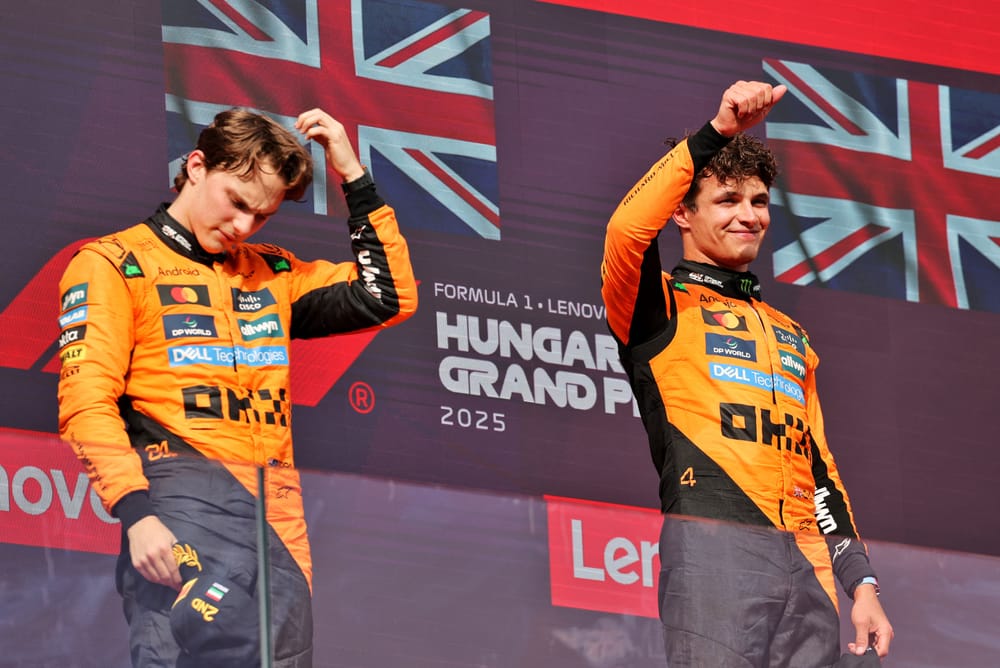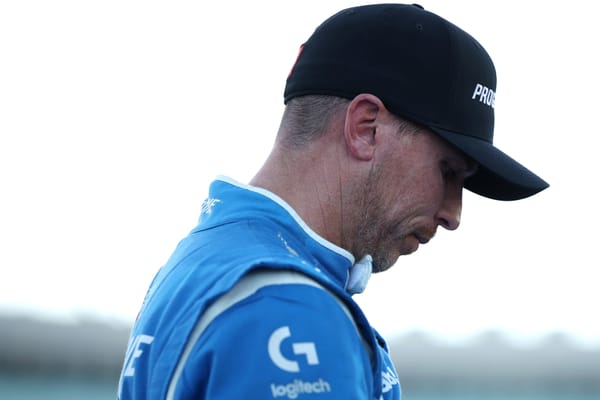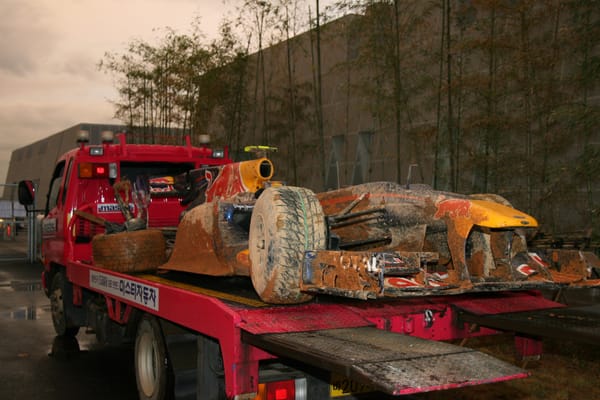Piastri wasn’t robbed — Hungary just played the odds
By Ben Waterworth
Oscar Piastri, on pole-sitter Charles Leclerc’s gearbox in the opening stint. Lando Norris, floundering back in fifth. Yet by the chequered flag in Budapest, it was Norris with the win — and Piastri staring at his rear wing, wondering what might’ve been.
Cue outrage. Headlines about strategy blunders. Talk of McLaren setting up their Aussie ace to fail. Sky Sports bias this, British favouritism that.
But here’s the thing: Piastri wasn’t robbed. He just lost a hand to the house — and Hungary always deals a cruel game.
The narrative that McLaren “screwed” Piastri only holds up if you ignore the context. This wasn’t a team conspiring against its lead driver. It was a textbook case of F1 doing what F1 does best: throwing a curveball in real time and rewarding the gamble that no one expected to pay off.
The call that ultimately won Norris the race? It wasn’t planned. In fact, McLaren admitted they didn’t even think a one-stop was viable — not on those tyres, not with that much distance to cover. Piastri’s strategy, a two-stop built around undercutting Leclerc, made perfect sense at the time. So did the later attempt to overcut when the first move didn’t stick. It was clean air versus traffic. A safe bet for a potential win.
But sometimes the safe bet loses.
What changed was Norris. After an average launch and a drift back to fifth, his race was basically in no man’s land. So McLaren threw him a lifeline. Go long, stretch the tyres, and hope for a safety car. It was a strategy rooted more in damage limitation than ambition — until Norris turned it into a victory.
Make no mistake: he earned it. His tyre management was supreme. His lap times stayed sharp. He didn’t just survive that one-stop; he made it sing. And once it became clear the plan might work, McLaren — rightly — let it play out.
Where does that leave Piastri? Frustrated, sure. But also boxed in by circumstance.
Hungary is infamously unforgiving. It’s Monaco without the walls. Even with a tyre delta, passing requires perfection — or desperation. And Piastri, unlike some, wasn’t going to take out his teammate to make a point.

In another team, maybe he would’ve been given the green light. But at McLaren, the rules are clear. No preferential treatment. No team orders unless absolutely necessary. It’s a policy that’s served both drivers well this year — and one that Piastri himself has benefited from in the past.
You also have to factor in the bigger picture. Piastri leads the championship. McLaren is on a historic streak of four straight 1-2 finishes. The title fight is far from over. There’s no use risking a double DNF just to settle a score on lap 69 of 70.
And despite the noise, Piastri knows it.
He didn’t rage over the radio. He didn’t light up the post-race pressers. He acknowledged the outcome, backed the strategy, and praised the team — even as he quietly clocked what could’ve gone differently.
Compare that with the reaction in the Australian media, where the backlash was loud and emotional. Contrast it with the British coverage, where some fans accused Sky of leaning too heavily into the Norris redemption arc. The reality? Both sides might be a little too invested in their respective golden boys.
Piastri doesn’t need defending. And Norris doesn’t need diminishing. One got lucky — the other didn’t. But luck is part of the job. So is being on the wrong side of a 50/50 call.
In this case, McLaren didn’t pick favourites. They picked a strategy that gave them the best shot at a 1-2. And when the dust settled, that’s exactly what they got.
Oscar Piastri’s time will come again. He’s too good, too calm, too complete for it not to. But sometimes, even the best drivers can’t outdrive the math.
And in Hungary, the numbers just didn’t fall his way.




